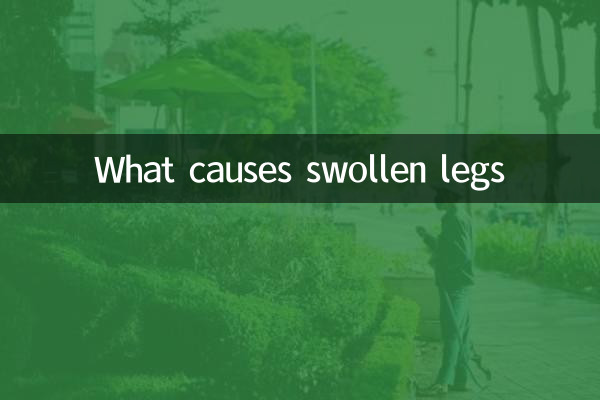What causes swollen legs
Swelling in the legs is a common symptom that can be caused by a variety of reasons. Recently, in discussions on health topics across the Internet, the causes and solutions to swollen legs have become one of the hot topics. This article will combine the hot content of the past 10 days to provide you with a detailed analysis of the common causes of leg edema, relevant data and suggestions for treatment.
1. Common causes of leg edema

Swelling in the legs is usually caused by fluid building up in the spaces between tissues. The following are some of the most common reasons discussed across the Internet in the past 10 days:
| reason | Proportion (discussion popularity in the entire network) | Typical symptoms |
|---|---|---|
| Standing or sitting for long periods of time | 35% | Worse in the afternoon or evening, relieved after rest |
| venous return disorder | 25% | Unilateral leg swelling, which may be accompanied by pain |
| heart disease | 15% | Bilateral symmetrical swelling that may be accompanied by difficulty breathing |
| kidney disease | 12% | Puffiness also appears on the face and eyelids |
| drug side effects | 8% | Occurs after taking certain medications |
| other reasons | 5% | Including lymphatic system problems, malnutrition, etc. |
2. Special cases in recent hot discussions
In the past 10 days, there have been several special cases related to leg edema in health topics that have triggered widespread discussion:
1. A netizen who has been working from home for a long time shared that he had severe lower limb edema due to sitting for more than 10 hours a day for several weeks. After seeking medical treatment, he was diagnosed as a mild manifestation of "economy class syndrome".
2. A well-known athlete suddenly suffered from unilateral leg swelling during a competition. After examination, he was found to have deep vein thrombosis. The public was reminded of the importance of hydration after exercise.
3. Many people who have recovered from COVID-19 have reported unexplained leg edema during recovery. Medical experts recommend close observation and prompt medical treatment.
3. Danger signs of swollen legs
According to recent advice from medical experts, you should seek medical attention immediately if:
| red flag | May indicate serious problem |
|---|---|
| Sudden severe swelling | Deep vein thrombosis, acute heart failure |
| accompanied by difficulty breathing | heart or lung disease |
| Red and hot skin | infection or inflammation |
| asymmetrical swelling | lymphatic system problems or blood clots |
| The dent persists and does not recover after pressing | Severe edema may involve organ dysfunction |
4. Recent recommended prevention and mitigation methods
Combined with recent health topic discussions, the following are prevention and mitigation suggestions generally recognized by experts and netizens:
1.moderate activity: Get up and move around for 5 minutes every hour of sitting, and avoid standing and sitting for long periods of time.
2.leg raising exercise: Elevate your legs above heart level for 15-20 minutes every day to promote venous return.
3.diet modification: Control salt intake and increase potassium-rich foods such as bananas, spinach, etc.
4.proper massage: Gently massage from ankle to knee, but avoid applying force to unexplained swelling.
5.Wearing compression stockings: Especially suitable for people who need to stand or sit for long periods of time.
5. Recent popular questions and answers
Q: Is swollen legs during pregnancy normal? What do experts recommend recently?
A: Obstetrics and gynecology experts recently stated that mild edema during pregnancy is a common phenomenon, but if it is accompanied by headache, vision changes or sudden worsening, you should seek medical attention immediately.
Q: Is the recent high temperature weather related to leg edema?
A: Yes. The recent high temperatures in many places have caused blood vessels to dilate, making it easier for body fluids to accumulate in the lower limbs. It is recommended to drink more water and avoid exposure to the sun.
Q: Some netizens reported that their legs were swollen after taking the COVID-19 vaccine. Do they need to worry?
A: The Centers for Disease Control and Prevention recently stated that vaccine-related edema is usually temporary, but if it persists for more than 3 days or worsens, it is recommended to seek medical examination.
Conclusion
Swelling in your legs can be an important signal from your body. By analyzing hot content across the Internet in the past 10 days, we found that public attention to health issues continues to increase. Understanding the various possible causes of leg edema, mastering the basic identification methods, and seeking medical treatment in time when necessary is an important part of maintaining health. Remember, any persistent or worsening swelling should not be ignored, and it is wisest to consult a professional doctor promptly.

check the details

check the details